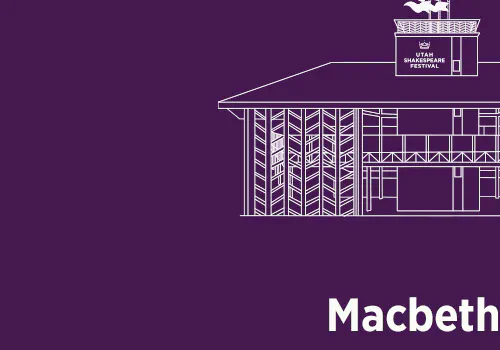By Lisa Larson
At a time when the social fabric of American society has come under intense scrutiny once again, it is worth noting that this is not the first era in which people have grappled to understand what it truly means to live the American dream. Using theatre as a medium to understand the intricacies of human connection, as well as to shape the ideals of societies at large, the messages found in the musical Ragtime are equal parts poignant and timely.
The musical, based on the novel by E.L. Doctorow, opens the viewers’ eyes to what life and the American dream looked like during the period of time between the beginning of the twentieth century and World War I. The lives of three families—a rich, white couple, a black ragtime musician, and a Jewish immigrant—are expertly woven together, creating a rich tapestry of love and loss, grief and gladness, tragedy and triumph.
In many ways, the issues portrayed in Ragtime are still very much part of the country’s backdrop today and were captured in this musical by four literary giants.
Terrance McNally
With a career spanning six decades and a litany of projects that have earned him a place among theatre’s elite, Terrance McNally’s life seems to embody the essence of one of the riveting musical numbers in Ragtime itself: “Make Them Hear You.”
As a pioneer in the movement to bring LGBTQ lifestyles into the spotlight, McNally was never one to shy away from the controversial. His 1998 premiere of Corpus Christi, which depicted a Christ-like character as homosexual, and the 2014 Mothers and Sons, which highlighted the specific challenges of a mother coming to grips with her late son’s homosexuality, are just two examples.
McNally’s love for opera and theatre began at an early age. Born in St. Petersburg, Florida in 1938, McNally moved from Florida to New York, then to Dallas before settling in what he referred to as the “hick town” of Corpus Christi, Texas. Despite his small town upbringing, McNally’s parents saw to it that he was exposed to the world of theatre, starting with Annie Get Your Gun when he was just eight years old.
In an interview with Charlie Rose in 1996, McNally talked about the impact these early experiences had on him, such as listening to Maria Meneghini Callas singing Rigoletto when he was just fourteen years old. “The sound of her voice did something to me,” he said (Charlie Rose interview, May 29, 1996, https://charlierose.com/videos/2571).
That exposure not only influenced his later work on the 1995 production Master Class, it whet his appetite for even more of the arts.
McNally’s career is peppered with unique encounters, such as tutoring the children of novelist John Steinbeck and working as a newspaper reporter and then as a stage manager for the Actors Studio. His list of accolades runs long and includes Tony Awards for Kiss the Spider Woman in 1993 and Ragtime in 1998.
Of his work with Ragtime, McNally told the Boston Globe in 2012 that this particular project highlighted not only ethnic-related social justice issues, but served as a parallel example of the gay-rights movement he witnessed throughout his lifetime.
Ragtime “really examines who we are as a nation and what kind of society we want to be,” McNally said in the interview with the Globe. The play’s commentary on women, race, socioeconomics, and more contributes to the production’s “staying power” as a novel and a musical, he told the Globe in 2012 (https://www.bostonglobe.com/arts/theater-art/2012/09/27/playwright-terrence-mcnally-talks-ragtime-and-life-theater/cdJFRDLESLYNSP3CxBQmAM/story.html).
McNally’s contributions to Ragtime and the world of theatre in general will not soon be forgotten. He died in March 2020 at the age of 81, from complications of COVID-19.
Stephen Flaherty and Lynn Ahrens
Although distinguished by careers of their own, the Stephen Flaherty and Lynn Ahrens pairing to create the music and lyrics for Ragtime is just one of many projects credited to this Rodgers and Hammerstein-style duo.
Together Flaherty and Ahrens have received some of theatre and film’s highest honors. From the Tony Award to the Drama Desk and Critics Circle awards, these two have certainly enjoyed their moments in the spotlight. In addition, they’ve earned nominations for two Academy Awards, two Golden Globes, and three Grammys and received the Oscar Hammerstein Award for Lifetime Achievement in 2014. In 2015 they were inducted into the Theatre Hall of Fame.
Some of their notable projects include Anastasia, Once on this Island, Seussical, and, of course, Ragtime.
Flaherty composed his first musical score by age fourteen. While in college, he played ragtime piano in a dance band—perhaps the perfect predecessor to his eventual role in creating the music for the hit musical Ragtime.
Ahrens cut her musical teeth on a little project known as Schoolhouse Rock, writing music to the “Interjections” and “Nouns” and “The Preamble”—a song about the opening statement of the tenets of the U.S. Constitution. She also wrote a few songs for Captain Kangaroo, including the theme song, Here Comes Captain Kangaroo.
According to an article in Playbill from January 2018, Ahrens and Flaherty met at the Lehman Engel BMI Musical Theatre Workshop in 1983. Their first New York show was the 1988 production of Lucky Stiff.
With more than twenty-five years to their composing partnership, it appears that encounter was lucky after all.
When asked in a 1997 interview with Playbill Online about the experience of working in so many different genres of music for Ragtime, Flaherty said he “loved it,” adding that he had been looking for years for a project that would include so many different “American themes and musical idioms” (https://www.playbill.com/article/ahrens-flaherty-talk-about-their-ragtime-experience-com-70458).
E. L. Doctorow
Were it not for the profound influence of American novelist E. L. Doctorow, neither McNally nor Flaherty nor Ahrens would have been able to sink their teeth into the historical fiction known as Ragtime.
Since its 1975 release, the book has been recognized among Modern Library’s 100 best English language novels of the twentieth century and was included in Time magazine’s 100 Best English Language Novels from 1923 to 2005.
Doctorow’s professional catalog includes twelve novels, three works of short fiction, a stage drama, and other essays. During his life Doctorow’s prowess was recognized with numerous awards, including the F. Scott Fitzgerald Achievement in American Literature Award in 1999, National Book Critics Circle Library of Congress Prize for American Fiction, the New York State Writers Hall of Fame, and more.
Doctorow was born on January 6, 1931 in the Bronx and died of lung cancer on July 21, 2015 in Manhattan.
Among Doctorow’s noteworthy skills was his ability to shed new light on the historical periods in which he set his novels. It was through this illumination that the streets of early twentieth century New York come to life in Ragtime.








